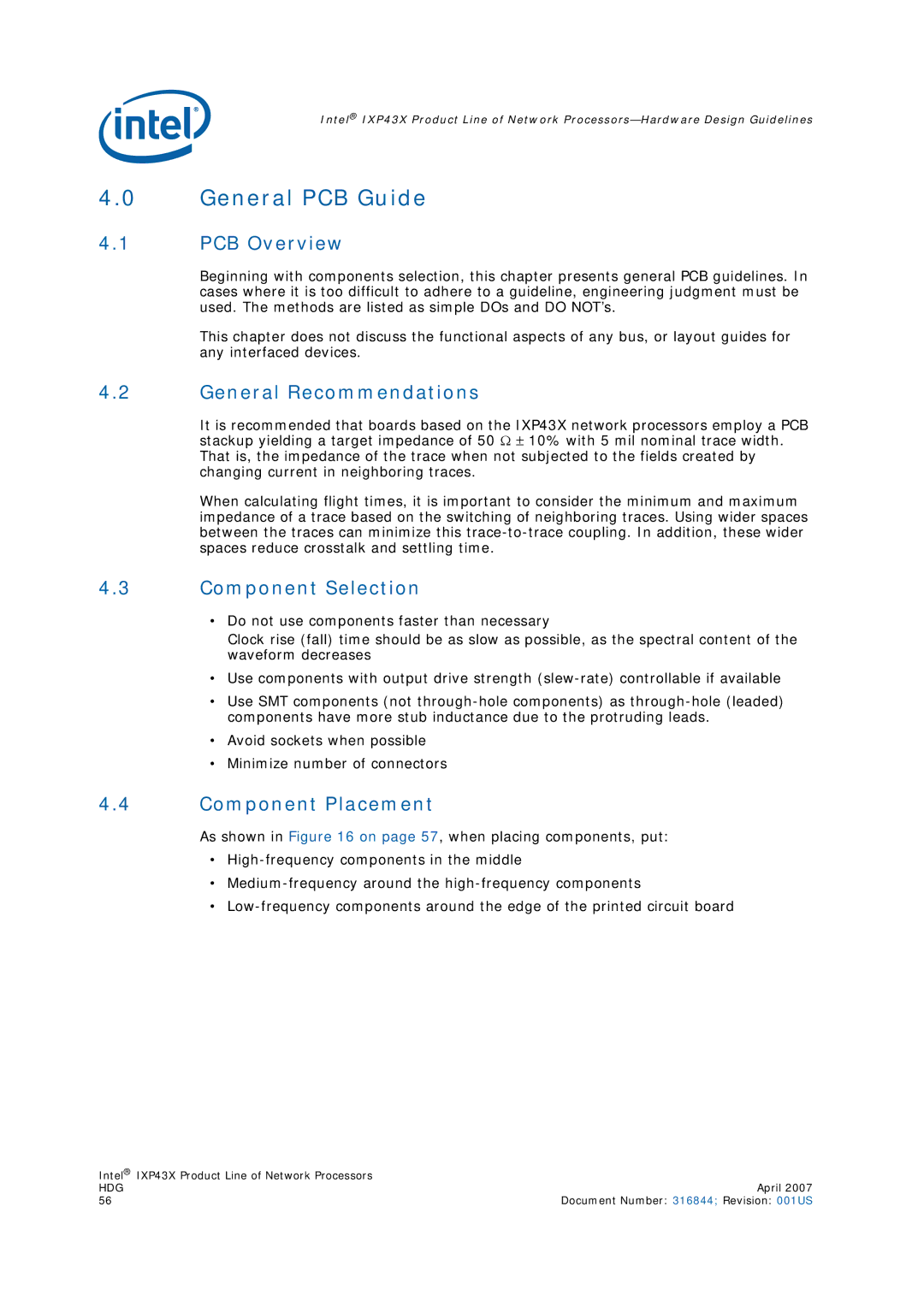
Intel® IXP43X Product Line of Network
4.0General PCB Guide
4.1PCB Overview
Beginning with components selection, this chapter presents general PCB guidelines. In cases where it is too difficult to adhere to a guideline, engineering judgment must be used. The methods are listed as simple DOs and DO NOT’s.
This chapter does not discuss the functional aspects of any bus, or layout guides for any interfaced devices.
4.2General Recommendations
It is recommended that boards based on the IXP43X network processors employ a PCB stackup yielding a target impedance of 50 Ω ± 10% with 5 mil nominal trace width. That is, the impedance of the trace when not subjected to the fields created by changing current in neighboring traces.
When calculating flight times, it is important to consider the minimum and maximum impedance of a trace based on the switching of neighboring traces. Using wider spaces between the traces can minimize this
4.3Component Selection
•Do not use components faster than necessary
Clock rise (fall) time should be as slow as possible, as the spectral content of the waveform decreases
•Use components with output drive strength
•Use SMT components (not
•Avoid sockets when possible
•Minimize number of connectors
4.4Component Placement
As shown in Figure 16 on page 57, when placing components, put:
•
•
•
Intel® IXP43X Product Line of Network Processors |
|
HDG | April 2007 |
56 | Document Number: 316844; Revision: 001US |
